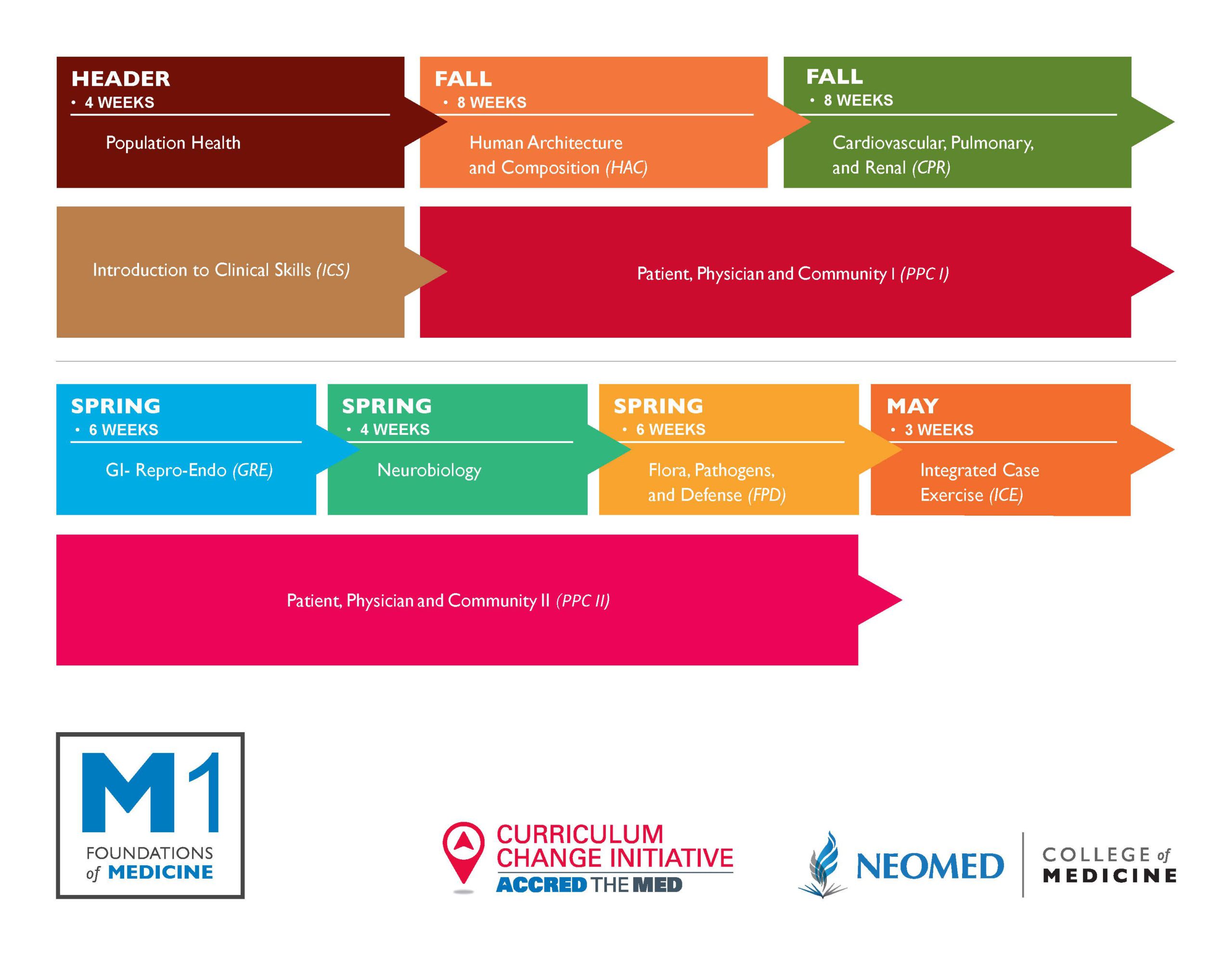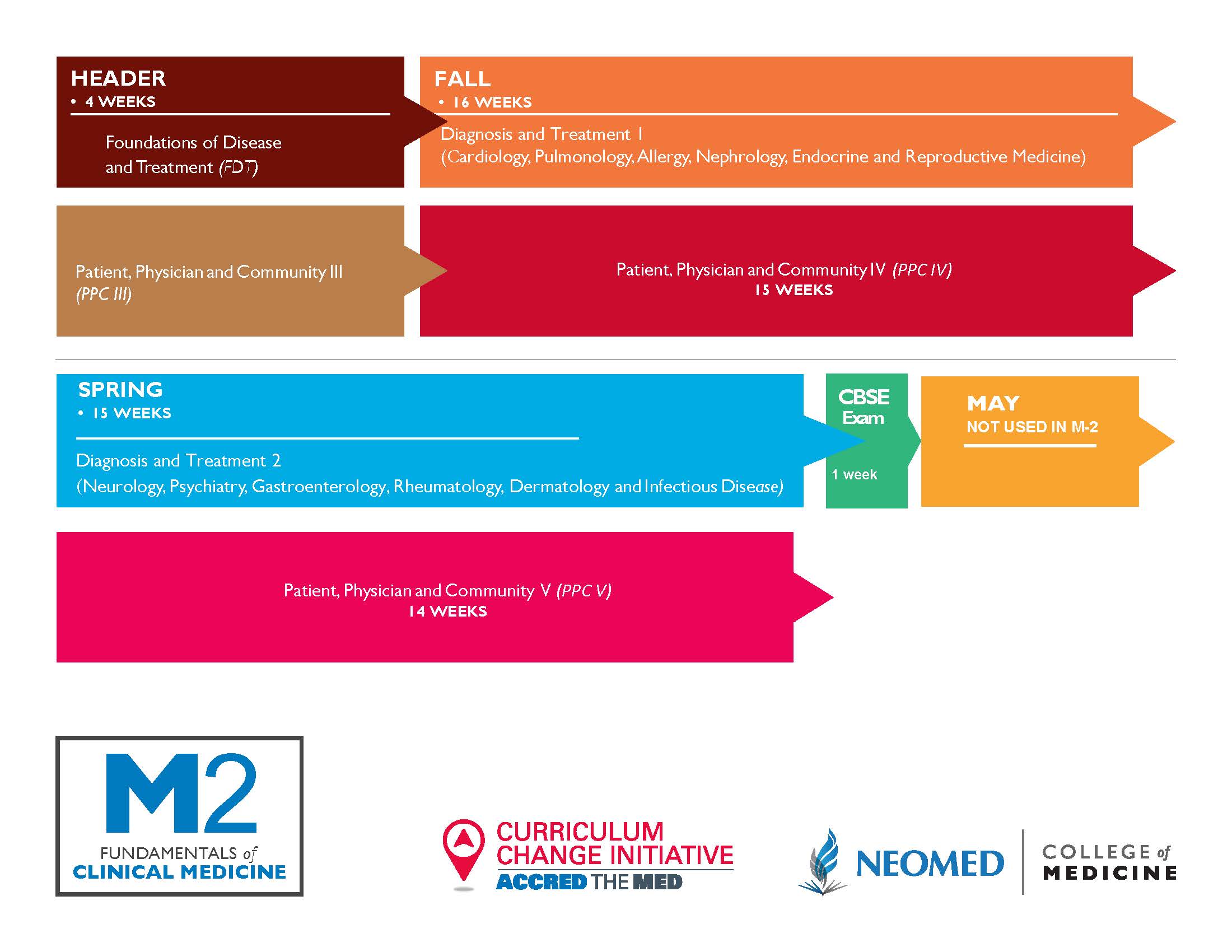College of Medicine Curriculum
Education grounded in patient care & health outcomes
Interprofessionally trained with a focus on cross-functional teams, cultural competence and population health, our students are a diverse group who listen to and care about their patients. The College of Medicine at NEOMED is known for balancing education, research, clinical care and service.
The four-year curriculum fuses behavioral, biological, clinical, community health and social sciences with the humanities.
COLLEGE OF MEDICINE EDUCATIONAL PROGRAM OBJECTIVES
The College of Medicine updated its educational program objectives in July 2020. Review the objectives.
First-Year Curriculum (M1)
Instruction in the basic medical science courses emphasizes the normal structure and function of the human body, the mechanisms by which these are maintained, and the factors leading to injury and disease.
While basic science courses focus on medical knowledge competencies, other courses seek to develop other important competencies, such as practice-based learning and improvement, systems-based practice, communication skills, patient care skills and professional conduct.
Most first-year courses are taught using peer instruction, as well as a combination of lectures, workshops, small group sessions and laboratories.

Second Year (M2)
M2 serves as the bridge from M1 to clinical applications in M3. The curriculum and educational activities cover material in body system modules and concentrate on the basic pathophysiologic processes and the mechanisms underlying clinical signs and disease.
The curriculum starts to shift emphasis from basic knowledge to more patient-centered applications by increasing hands-on experience in labs, hospitals and community settings, as well as at NEOMED’s Wasson Center, where students interact with simulated as well as actual patients.
Students attend classes at the Rootstown campus and at the community-based clinical teaching sites, where small-group teaching takes place.

Third Year (M3)
The third year of medical school provides theoretical and practical foundations in the clinical disciplines.
Working with clinical faculty and residents in affiliated hospitals, students learn diagnostic and therapeutic skills, gain experience in patient management and examine the ethical dilemmas of contemporary medicine.
In each of seven clerkships, students spend time in hospitals, private offices and clinics, with primary focus on the specific patients they encounter.
They become the junior members of clinical teams, gradually taking on active roles in support of the faculty, residents and nurses. This requires that students apply the education gained in classrooms and labs during the first two years. For more information about clinical clerkships, visit the Let’s Get Ready to Teach webpage.
Fourth Year (M4)
Guided by advisors and working within a set of requirements, senior medical students design their own curricula based on their educational and career priorities and interests.
Over the year, students take at least seven, four-week core rotations and electives, two online Application to Clinical Medicine courses (ACM), and a Clinical Epilogue/Capstone course.
Students are required to design a balanced schedule of clinical core rotations and electives, completing three clinical core rotations to meet requirements for sub-internship, critical care, and outpatient experiences. Additionally, students round out the M4 clinical curriculum by taking four electives of their choice (three of which must be clinical in nature). Across all clinical electives, at least one must be in a different specialty.
MORE
- College of Medicine curriculum blueprint details
- College of Medicine curriculum guiding principles

